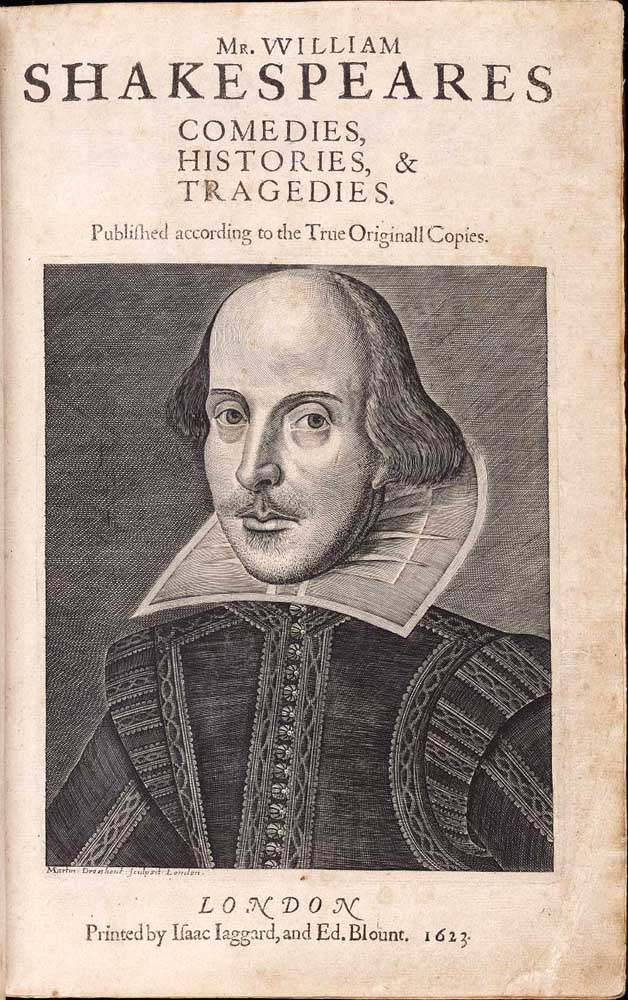Lower Columbia Currents: Censors, keep your bumbling hands off the bard
Published 9:08 am Monday, August 28, 2023

- Columnist asserts it is ridiculous to try to ban William Shakespeare’s works.
“The Bard” of Stratford upon Avon is supposedly our new corrupter of youth.
Trending
News reports last week indicated that students in a public school district near Tampa, Florida, will only read excerpts of William Shakespeare’s plays. Officials made the decision in order to comply with the state’s new laws prohibiting classroom discussion about sexual orientation or gender identity.
This mandate is part of the far right’s nationwide attempt to censor school and public library materials that deal with gender and black history. Many other authors — living and dead — have been targeted, but Florida’s focus on Shakespeare puts our language’s greatest writer under unfair and misguided scrutiny. Florida Gov. Ron DeSantis, who is seeking the GOP presidential nomination, is a leading actor in this culture war and the right’s efforts to distort history.
There are many reasons to oppose censorship: It doesn’t usually work, because it often makes banned materials more desirable. It impedes public debate. It violates freedom of expression and the First Amendment. It’s cowardly, because those who want to shut down ideas and content fear their own can’t compete.
Trending
What’s the problem?
Finally, the censors themselves often are too dense and clumsy to understand what they’re reading. This likely is the case in Florida.
News stories don’t identify Florida’s specific objections to Shakespeare’s works.
Is it that many of Shakespeare’s heroines dress up and pose as men? I hope not, because they do so to further the plot, not out of gender identity crises.
Cutting them out would gut the plays. (Remember , too, that women were not allowed to act in Shakespeare’s Elizabethan England, forcing men to play women’s roles).
Shakespeare wrote to entertain people and make a buck. If you could ask him what his theory of art was, he’d probably say something like “selling as many theater seats as possible.” He knew enough, though, that to reflect life, his dramas had to mix tragedy and comedy, romance and hate. Great writers often depict horrid content to make a point.
It is true that the majority of Shakespeare’s 154 sonnets are addressed to a man called a “fair youth,” leading to speculation that the playwright was bisexual. Perhaps he was, but that does not rob the best of these 14-line love poems of their beauty and sensitivity. Many artists have been homosexuals. (Michelangelo,
Elton John and Oscar Wilde among them). That does not give anyone license to censor their work.
Of Shakespeare’s 37 or so plays, middle and high school students typically read Romeo and Juliet. The play contains nothing to suggest that homosexual or bisexual behavior is a motive. Romeo is a full-blooded heterosexual player who weeps over unrequited love for Rosaline but instantly forgets her upon meeting Juliet.
However, like many of Shakespeare’s works, Romeo and Juliet contains graphic sexual puns and double meanings, most notably as it opens. Characters Gregory and Sampson talk in a phallic way about “drawing thy tool.’ “thrust(ing) the maids (of a rival family) to the wall” and “cutting off their maidenheads” (taking away their virginity).
It’s crass all right. But it’s not gratuitous. It has a deadly serious purpose. Sampson and Gregory (members of Juliet’s Capulet clan) are talking in a jocular way about raping women of Romeo’s family, the Montagues.
The scene shows how dangerously hair-trigger the relationship between the rival families had become. It drives the action of the play and helps explain why Romeo and Juliet’s love is so risky and why it is an act of rebellion against their families.
Modern readers view Romeo and Juliet as a tragic romance, but at least some in Shakespeare’s Elizabethan audiences would think the two teenagers deservedly die for defying their parents.
(Some readers may assert the teens got dinged for having premarital sex. However, they were considered of marriageable age in Elizabethan England, and they had secretly wedded before consummating their relationship.)
Readers can also interpret the play as a diatribe against war. And that opening scene between Sampson and Gregory dehumanizes members of the rival family. Isn’t that a key — and dangerous — strategy of war propaganda?
Making a buck
Shakespeare wrote to entertain people and make a buck. If you could ask him what his theory of art was, he’d probably say something like “selling as many theater seats as possible.”
He knew enough, though, that to reflect life, his dramas had to mix tragedy and comedy, romance and hate. Great writers often depict horrid content to make a point. Shakespeare was a master at this.
Romeo and Juliet’s genuine love contrasts with the jocular, vulgar conversation of Sampson and Gregory. And such coarse lines help heighten the beauty of other language, such as Romeo’s exquisite lines at the end of the play when he laments over Juliet, whom he thinks is dead but is in a drug-induced coma:
“Death, that hath sucked the honey of thy breath, hath had no power yet over thy beauty. Beauty’s ensign (battle flag) is still crimson in thy lips and in thy cheeks, and death’s pale flag is not advanced (staked) there.”
Any language Florida censors find objectionable in Shakespeare would be mild compared to lyrics found in some of the music and social media content young people consume these days. And if parents want to object, they can pull their children out of class.
It’s appropriate to debate the value or purpose of coarse language in art and literature, but the final arbiter of that should be audiences, teachers and parents — not state censors.
DeSantis and other culture warriors would do better to focus on this nation’s real troubles: uncontrolled federal spending, the rise of China, the need for school children to rebound from COVID-related learning declines and addressing climate change, the opioid crisis and the broken immigration system.
Our trouble, dear readers, is not that our children are reading too much Shakespeare. It’s that they are not reading enough of him.
Cate Gable is taking a week off from her Coast Chronicles column.









